6 Reasons Snakes Come in Your House, Experts Say
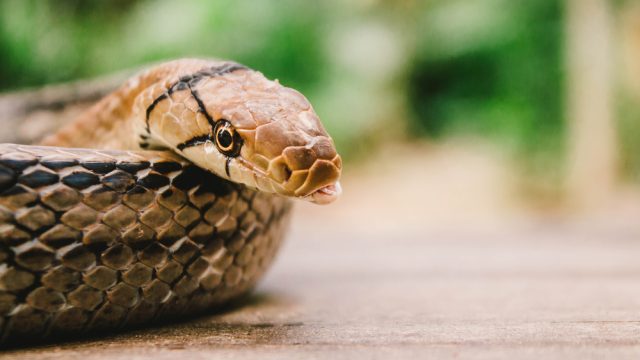
No matter where you live, there’s a good chance that snakes will make their way to your yard at some point. But while experts say this can be a blessing for your garden, these reptiles pose a potential problem when they decide to move on further into human territory. Even though it can be quite a surprise to come across one in places like your garage—or even your car—it’s quite another to find that they’ve made their way into your main living space. Wondering why they choose to slither in? Read on for the reasons experts say snakes come into your house.
READ THIS NEXT: The No. 1 Sign There’s a Snake Under Your Porch.
1
They’re trying to shed their skin.
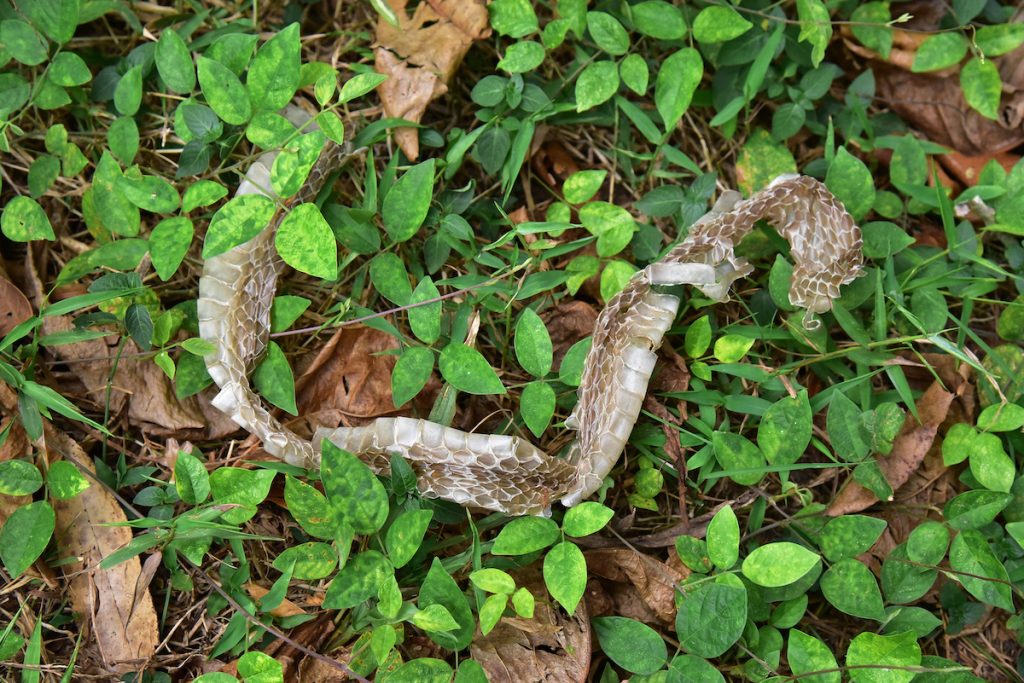
Snakes need food, water, and shelter, just like any other animal. But another one of their basic functions sets them apart—and can even be a clue that they’re hanging around your house.
“Snakes must regularly shed their skin as they continue to grow,” says Ian Williams, BCE, technical services manager at pest control company Orkin. “This is a vulnerable time for them, and often the edges of rocks, concrete, and wood can be used to help peel the old skin off during their molt. The home can then provide shelter while their new scales harden.”
2
They’re looking for prey.
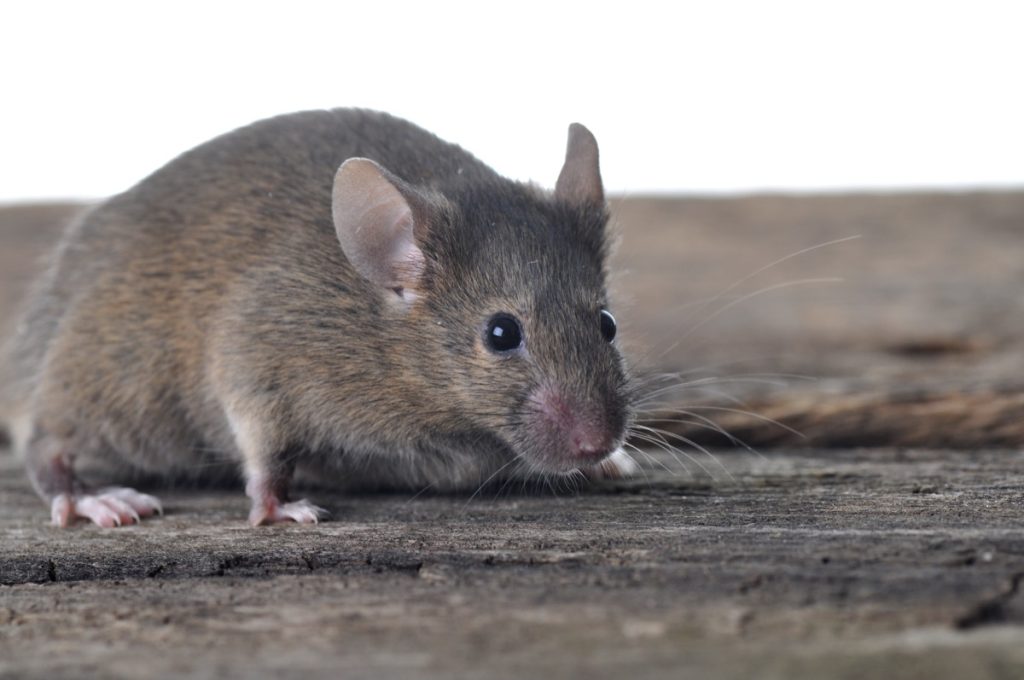
Snakes are a vital part of the ecosystem whose hunting habits can help rid your yard and garden of pests. But in some cases, reptiles can also make their way indoors looking for a meal.
“Many species of snakes seek rodents for food, and if you have rodents living in your attic or property, it is very possible for snakes to be present, too,” Adrienne Vosseler of Trutech Wildlife Service and Critter Control Operations previously told Best Life.
And it’s not just mice and rats they’re after. “Search for food like bird eggs, baby birds, frogs, lizards, and other smaller amphibians, which can also be an attractant for snakes,” Vosseler added.
READ THIS NEXT: Watch Out for These Venomous Snakes “Suddenly Invading,” Experts Caution.
3
They want to get warm.
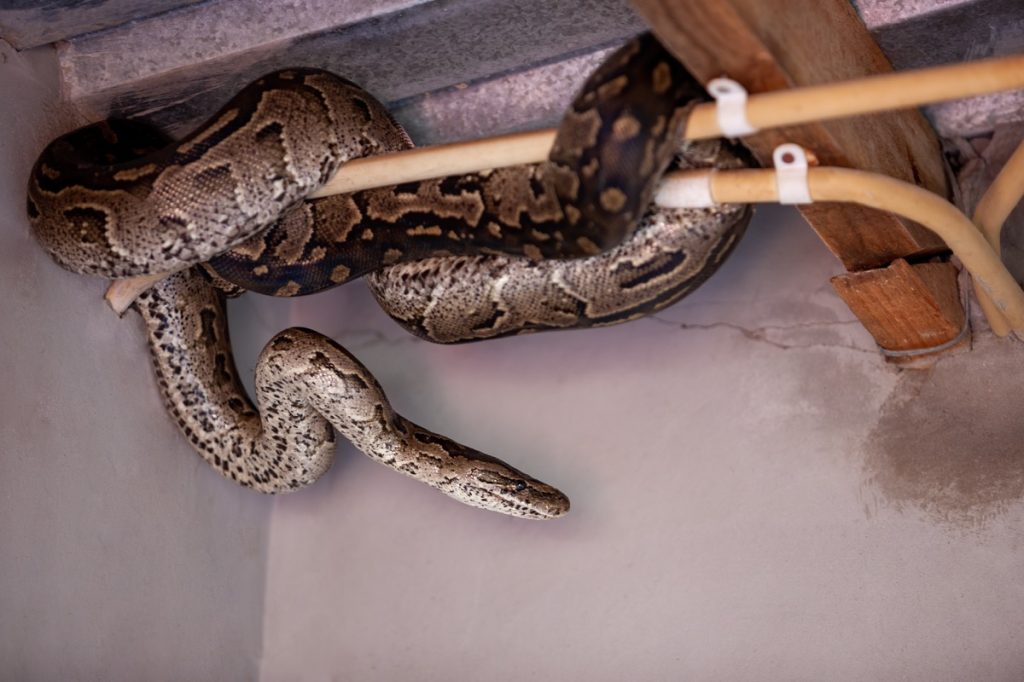
Cold-blooded creatures like snakes rely on external heat sources to stay warm and active. Unfortunately, sometimes the easiest place for them to get cozy can be your home.
“Snakes can’t regulate their body temperature, which means they must search for a warm place when they get too cold,” Williams tells Best Life. “Your house could attract a cold snake wanting to increase its body temperature. Underfloor heating, heaters, boilers, and other external heat sources attract snakes.”
4
They’ve found an easy way inside.
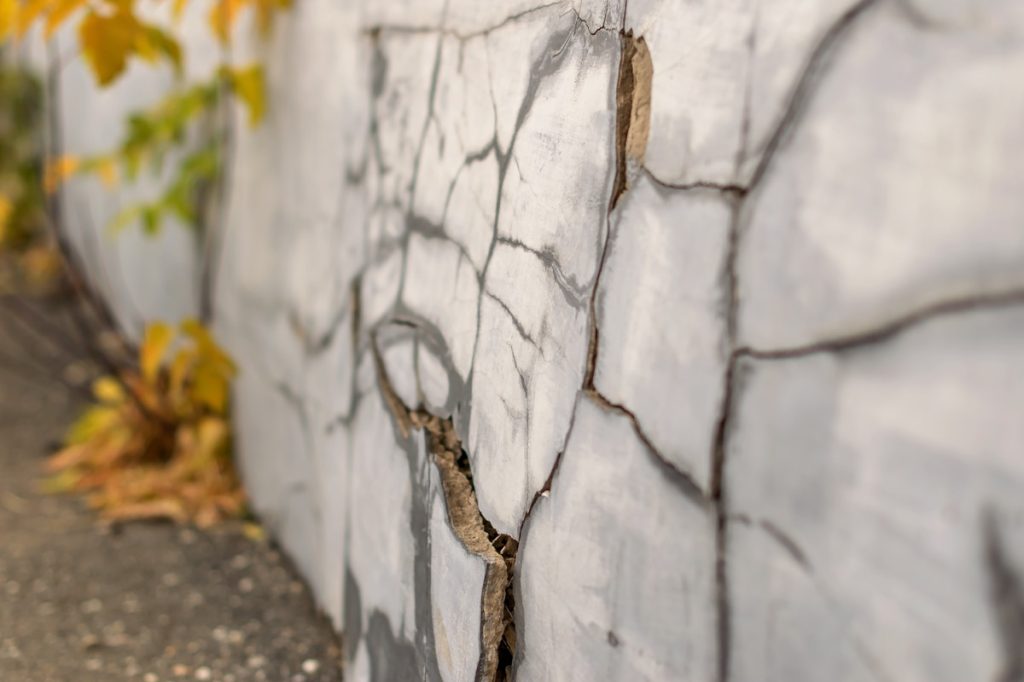
Besides creating the occasional cross breeze in your home, you would never consider leaving your front door or windows wide open. But even if you’re taking care not to let the outdoors in, experts warn there could be other ways reptiles are making their way inside.
“A small creature like a snake could find its way easily into a home if a hole presents itself. Often, this can be through the foundation or basement level, especially if there are cracks or pieces falling away,” Victor Chirilas, director at construction company Mainmark U.K., tells Best Life. “Snakes are curious creatures, and they could come into your house simply because they’re exploring for food and warmth and a gap, crack, or hole provides an easy entry.”
“Make sure you regularly check out the exterior of your home, especially around the ground, in order to keep pests out,” he suggests. “It’s just one of the many reasons why people should look after their foundations. If a small crack or gap presents itself, you stand a very high risk of having reptiles or other animals make their way into your home.”
For more snake advice delivered straight to your inbox, sign up for our daily newsletter.
5
They want to hide or hibernate.
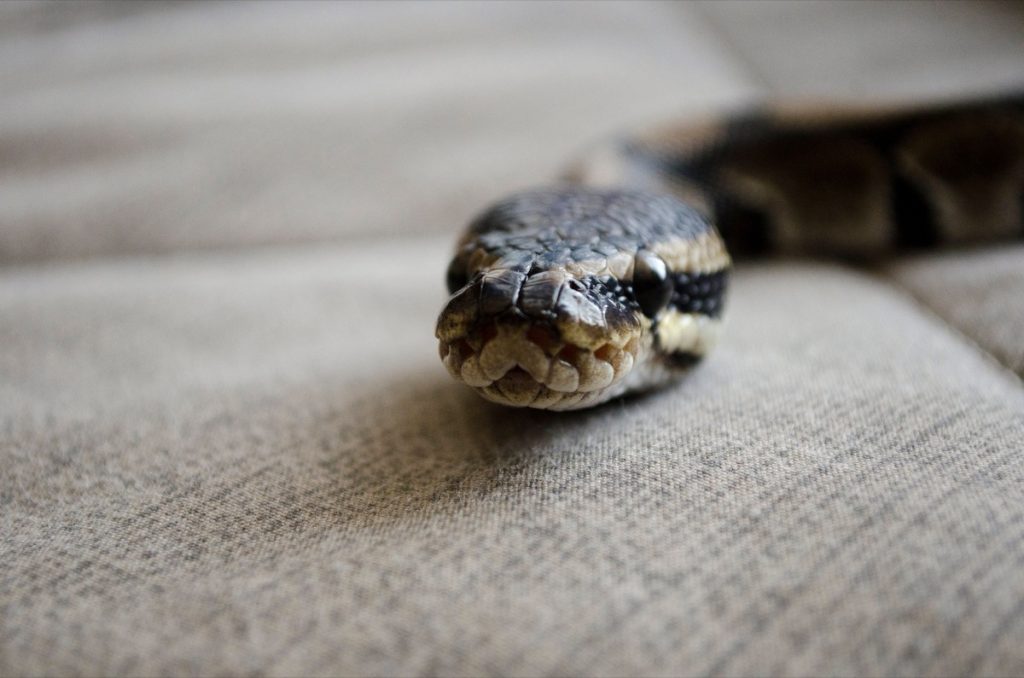
Your home is hopefully a cozy, safe, and inviting place where you can rest safely and weather even the chilliest of winters. However, this is also what makes it an enticing place for a snake to crash.
“Birds of prey and other animals eat snakes regularly, so they often look for places to hide out,” says Williams. “They feel safest in areas where you can’t spot them easily. Also, snakes use areas in your home as a hiding place where they can digest their food, which can sometimes take days. And, of course, homes can offer shelter, especially in inclement weather or over a long winter.”
In fact, some experts point out that one time of year can make it more likely for reptiles to make their way indoors. “When the seasons change, snakes will seek out hibernation dens,” Roger Dickens, technical expert for bird and wildlife control with Ehrlich Pest Control, tells Best Life. “Often, these areas include crawlspace, attics, and other parts of the home that don’t often see a lot of human activity.”
READ THIS NEXT: How a Snake Can Get Into Your Home Through Your Toilet.
6
They’re looking to make a nest.
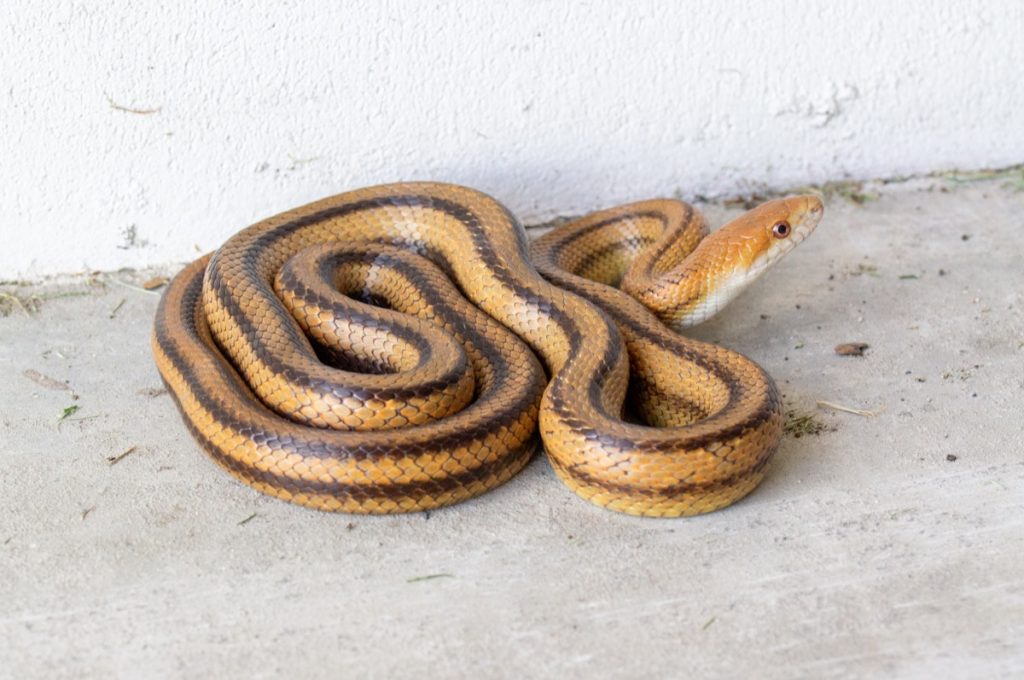
Having offspring can be a vulnerable time for any animal. But in the case of cold-blooded animals like snakes, it can also mean they need a place that can provide warmth and safety—which can sometimes end up being your home.
“After a snake mates, the female will often look for a safe place to have her young,” Jennifer Mecham, a snake expert and writer with ReptilesBlog.com, tells Best Life. “She might enter your home in search of a quiet, dark place to build her nest.”
If you ever find a snake making itself cozy, Mecham says you don’t need to put yourself in danger by trying to get them outside yourself. “A professional will have the experience and the equipment to safely and effectively remove the snake from your home,” she says.